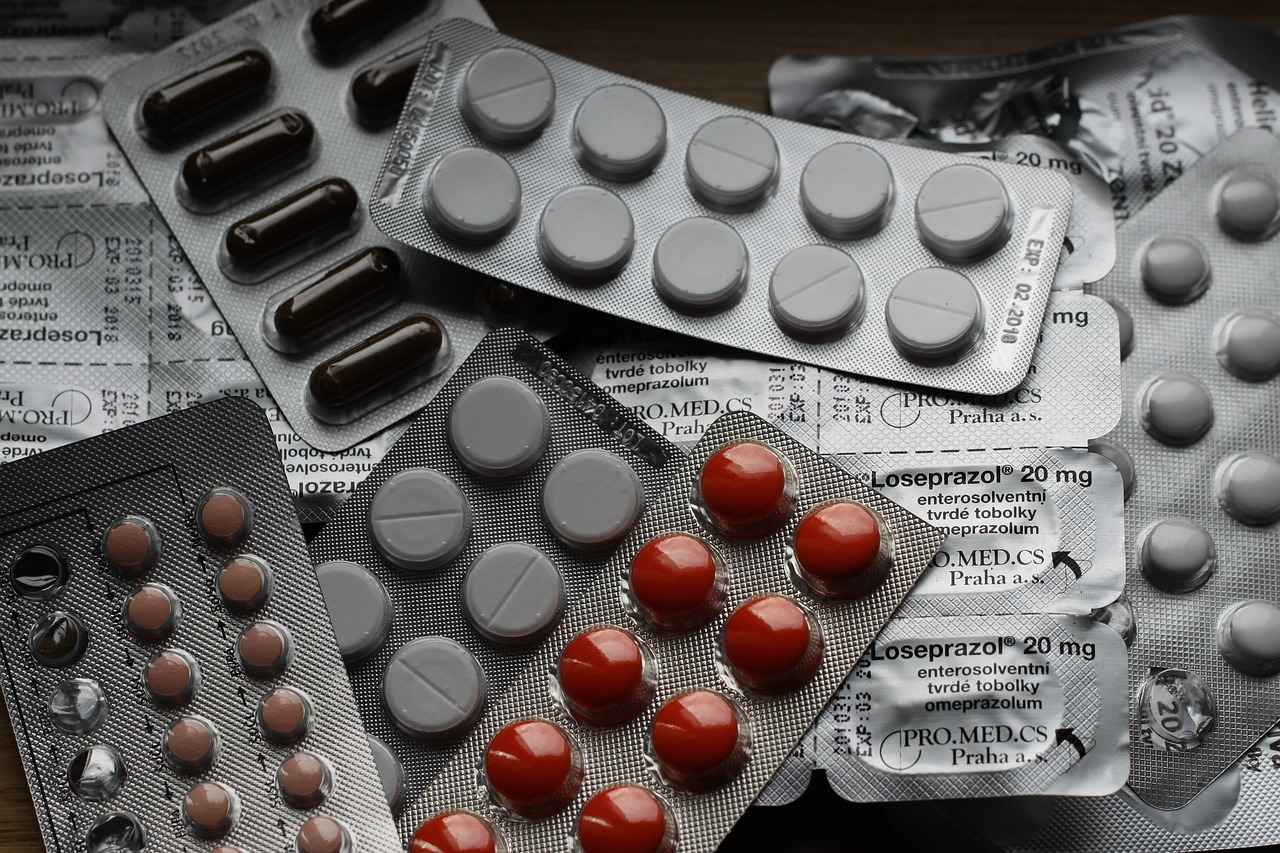This article delves into the remarkable health benefits of beta-sitosterol, a plant sterol recognized for its potential in managing prostate conditions and enhancing overall well-being. With increasing concerns about prostate health, understanding the role of beta-sitosterol can empower individuals to make informed health choices.
What is Beta-Sitosterol?
Beta-sitosterol is a naturally occurring plant sterol that closely resembles cholesterol. Found in a variety of plants, it is particularly noted for its health benefits, especially regarding prostate health.
How Does Beta-Sitosterol Support Prostate Health?
Research indicates that beta-sitosterol may alleviate symptoms of benign prostatic hyperplasia (BPH) by enhancing urinary flow and reducing inflammation, thereby promoting optimal prostate function.
Mechanism of Action
The action of beta-sitosterol in supporting prostate health involves blocking cholesterol absorption and mitigating inflammation, which can help ease symptoms associated with prostate enlargement.
Studies Supporting Its Efficacy
Numerous studies have demonstrated that beta-sitosterol significantly improves urinary symptoms related to BPH, establishing it as a viable natural treatment option.
Comparison with Other Treatments
When juxtaposed with conventional BPH treatments, beta-sitosterol emerges as a natural alternative with fewer side effects, making it an appealing choice for many.
Dosage and Administration
To reap the prostate health benefits of beta-sitosterol, it is vital to adhere to recommended dosage guidelines provided by healthcare professionals.
Potential Side Effects of Beta-Sitosterol
While generally safe, some individuals may experience mild side effects, such as gastrointestinal discomfort. Being aware of these risks is essential for informed usage.
Who Should Avoid Beta-Sitosterol?
Certain individuals, particularly those with specific medical conditions or on particular medications, should consult their healthcare provider before considering beta-sitosterol to avoid potential interactions.
Interactions with Medications
Beta-sitosterol may interact with cholesterol-lowering medications and other drugs, making it important to discuss its use with a healthcare provider.
Incorporating Beta-Sitosterol into Your Diet
Enhancing your diet with beta-sitosterol-rich foods can significantly benefit prostate health. Foods such as avocados, nuts, and vegetable oils are excellent sources of this beneficial sterol.
Best Food Sources
- Pumpkin seeds
- Soybeans
- Corn
Supplements vs. Whole Foods
Choosing between beta-sitosterol supplements and whole food sources should be based on personal health goals, dietary preferences, and professional advice.
Conclusion: The Future of Beta-Sitosterol in Prostate Health
As ongoing research unfolds, beta-sitosterol shows great promise as a natural aid for prostate health. Its potential benefits warrant further exploration and consideration in holistic health approaches.

What is Beta-Sitosterol?
Understanding Beta-Sitosterol: A Key Player in Prostate Health
Beta-sitosterol is a naturally occurring plant sterol that shares a structural similarity with cholesterol. Found in a variety of plants, this compound is gaining attention for its numerous health benefits, particularly in promoting prostate health.
Beta-sitosterol is a type of phytosterol, which is a plant-derived compound that resembles cholesterol in structure. It is abundant in foods such as nuts, seeds, and certain vegetable oils. The significance of beta-sitosterol lies in its potential health benefits, especially concerning the prostate gland, where it may play a role in mitigating symptoms related to prostate enlargement.
Health Benefits of Beta-Sitosterol
- Supports Urinary Function: Research indicates that beta-sitosterol may help alleviate symptoms of benign prostatic hyperplasia (BPH), a common condition affecting older men.
- Reduces Inflammation: This plant sterol is known to have anti-inflammatory properties that can contribute to improved prostate health.
- Cholesterol Management: By blocking the absorption of cholesterol in the intestines, beta-sitosterol can also support overall cardiovascular health.
How Does Beta-Sitosterol Work?
The mechanism by which beta-sitosterol supports prostate health involves its ability to inhibit the uptake of cholesterol in the intestines, which may help to reduce the size of the prostate and improve urinary flow. Additionally, its anti-inflammatory effects can alleviate discomfort associated with prostate enlargement.
Research and Studies
Numerous studies have highlighted the efficacy of beta-sitosterol in improving urinary symptoms related to BPH. For instance, clinical trials have shown significant improvements in urinary flow rates and reductions in residual urine volume among participants taking beta-sitosterol supplements.
Conclusion
Incorporating beta-sitosterol into your diet through natural food sources or supplements may offer substantial benefits for prostate health. As research continues to evolve, this plant sterol holds promise as a natural alternative for managing prostate conditions, making it a valuable component of a holistic approach to men’s health.

How Does Beta-Sitosterol Support Prostate Health?
Beta-sitosterol is a plant sterol that has garnered attention for its potential benefits in promoting prostate health, particularly in the context of managing benign prostatic hyperplasia (BPH). This condition, characterized by an enlarged prostate, can lead to various urinary issues that significantly impact quality of life.
Research suggests that beta-sitosterol may help alleviate these symptoms through several mechanisms:
- Improvement in Urinary Flow: Studies indicate that beta-sitosterol can enhance urinary flow rates in men suffering from BPH. By relaxing the muscles surrounding the bladder and urethra, it facilitates smoother urination.
- Reduction of Inflammation: Chronic inflammation is often a contributing factor to prostate enlargement. Beta-sitosterol possesses anti-inflammatory properties that may help reduce swelling and discomfort associated with BPH.
- Hormonal Balance: Beta-sitosterol may influence the hormonal pathways involved in prostate growth, potentially helping to maintain a healthier prostate size and function.
In clinical studies, participants who took beta-sitosterol reported significant improvements in urinary symptoms, such as decreased nighttime urination and increased overall satisfaction with urinary function. This makes beta-sitosterol a promising option for those seeking natural alternatives to traditional BPH treatments.
Moreover, the safety profile of beta-sitosterol is generally favorable, with few reported side effects. This aspect, combined with its effectiveness, positions beta-sitosterol as a viable supplement for prostate health.
In conclusion, incorporating beta-sitosterol into one’s health regimen may offer substantial benefits for prostate health, particularly for men experiencing the discomforts of BPH. As always, it is advisable to consult with a healthcare professional before starting any new supplement to ensure it aligns with individual health needs.
Mechanism of Action
The mechanism by which beta-sitosterol supports prostate health is multifaceted, primarily involving its ability to block the absorption of cholesterol and mitigate inflammation. This dual action is crucial for individuals experiencing symptoms associated with prostate enlargement, particularly benign prostatic hyperplasia (BPH).
Beta-sitosterol competes with cholesterol for absorption in the intestines. By doing so, it reduces the overall cholesterol levels in the body, which is beneficial because high cholesterol has been linked to various health issues, including prostate problems. Lower cholesterol levels may help improve prostate function and reduce the risk of prostate-related diseases.
In addition to its cholesterol-lowering effects, beta-sitosterol exhibits anti-inflammatory properties. Inflammation is a significant factor in the progression of prostate enlargement, leading to discomfort and urinary issues. By reducing inflammation, beta-sitosterol can help alleviate these symptoms, promoting better urinary flow and overall prostate health.
| Benefit | Mechanism |
|---|---|
| Cholesterol Absorption Blockage | Competes with cholesterol in the intestines |
| Reduction of Inflammation | Inhibits pro-inflammatory compounds |
Numerous studies have demonstrated that beta-sitosterol can significantly improve urinary symptoms related to BPH. For instance, clinical trials have shown that men taking beta-sitosterol experienced a marked improvement in urinary flow rates and a reduction in the frequency of urination at night, which can greatly enhance quality of life.
In summary, the mechanism of action of beta-sitosterol is primarily through its ability to block cholesterol absorption and reduce inflammation, making it a promising natural option for those seeking to improve prostate health.
Studies Supporting Its Efficacy
Research has consistently demonstrated that beta-sitosterol can significantly alleviate urinary symptoms associated with benign prostatic hyperplasia (BPH). A number of clinical trials have highlighted its potential as a natural treatment option for men experiencing the discomforts of BPH.
In one notable study, participants who took beta-sitosterol reported improved urinary flow and a reduction in the frequency of nighttime urination, known as nocturia. This improvement is crucial for enhancing the quality of life for those affected by prostate enlargement. The study concluded that beta-sitosterol not only provided symptomatic relief but also contributed to overall prostate health.
Another research effort involved a meta-analysis of multiple studies, which revealed that beta-sitosterol significantly improved various urinary symptoms, including urinary urgency and incomplete bladder emptying. The results indicated that the plant sterol could serve as a viable alternative to conventional medications, particularly for individuals seeking a more natural approach.
The mechanism by which beta-sitosterol operates involves its ability to inhibit the activity of enzymes that contribute to prostate enlargement. By doing so, it helps reduce inflammation and promotes better urinary function. This dual action is what makes beta-sitosterol a compelling option for those looking to manage BPH symptoms.
Additionally, the safety profile of beta-sitosterol has been well-documented. Most studies have reported minimal side effects, making it a suitable choice for many men. However, it is always advisable to consult with a healthcare professional before starting any new supplement regimen.
In conclusion, the growing body of evidence supporting the efficacy of beta-sitosterol in managing urinary symptoms related to BPH underscores its potential as a natural treatment. As research continues, it may become an integral part of holistic strategies aimed at promoting prostate health.
Comparison with Other Treatments
When considering treatment options for benign prostatic hyperplasia (BPH), it’s essential to evaluate the various alternatives available. One notable contender is beta-sitosterol, a natural plant sterol that has gained attention for its potential benefits in managing prostate health.
Unlike conventional treatments, which often involve medications or surgical interventions, beta-sitosterol offers a more holistic approach. It is derived from natural sources, making it appealing to those who prefer to avoid synthetic drugs. Traditional medications for BPH, such as alpha-blockers and 5-alpha-reductase inhibitors, can come with a range of side effects, including dizziness, fatigue, and sexual dysfunction. In contrast, beta-sitosterol is generally well-tolerated, with fewer reported adverse effects.
Research indicates that beta-sitosterol may improve urinary symptoms associated with BPH by enhancing urinary flow and reducing inflammation. This mechanism of action is particularly significant for individuals seeking relief without the complications that can arise from pharmaceutical treatments. Studies have shown that patients using beta-sitosterol experience significant improvement in their urinary symptoms, often comparable to those treated with conventional medications.
Moreover, the natural composition of beta-sitosterol means it can be integrated into one’s diet through various foods, such as nuts, seeds, and avocados, or taken as a supplement. This flexibility allows individuals to choose a method of intake that best suits their lifestyle and preferences.
In summary, while conventional treatments for BPH have their place, beta-sitosterol presents a compelling alternative. With its natural origin and lower incidence of side effects, it is becoming an increasingly popular choice for those looking to manage their prostate health effectively.
Dosage and Administration
Determining the appropriate dosage of beta-sitosterol is essential for maximizing its prostate health benefits. While this natural plant sterol has demonstrated potential in alleviating symptoms related to prostate conditions, such as benign prostatic hyperplasia (BPH), it is crucial to adhere to recommended dosage guidelines for optimal results.
Typically, healthcare professionals suggest a dosage ranging from 60 mg to 130 mg of beta-sitosterol per day. This dosage can vary based on individual health needs and the specific formulation of the supplement. It is important to consult a healthcare provider to tailor the dosage to your personal health profile.
Moreover, beta-sitosterol can be found in various dietary sources, including avocados, nuts, and vegetable oils. Incorporating these foods into your daily diet can help you achieve the necessary intake of this beneficial sterol. However, when opting for supplements, ensure they are sourced from reputable manufacturers to guarantee quality and efficacy.
As with any supplement, it is vital to monitor your body’s response to beta-sitosterol. Some individuals may experience mild side effects, such as gastrointestinal discomfort. Keeping an open line of communication with your healthcare provider can help manage any adverse reactions and adjust dosages as necessary.
In summary, following the recommended dosage of beta-sitosterol, whether through supplements or dietary sources, is critical for those seeking to enhance their prostate health. Always consult with a healthcare professional before starting any new supplement regimen to ensure it aligns with your health goals.

Potential Side Effects of Beta-Sitosterol
Beta-sitosterol, a plant sterol known for its various health benefits, particularly in supporting prostate health, is generally regarded as safe for most individuals. However, it is essential to be aware of potential side effects that may arise from its use. Understanding these risks can help users make informed decisions regarding their health.
While many people tolerate beta-sitosterol well, some may experience mild side effects. The most commonly reported issues include:
- Gastrointestinal Discomfort: Some individuals may experience symptoms such as bloating, gas, or diarrhea after consuming beta-sitosterol. These symptoms are usually mild and temporary.
- Nausea: In rare cases, some users may feel nauseous after taking beta-sitosterol, particularly if taken on an empty stomach.
- Allergic Reactions: Though uncommon, allergic reactions such as rash or itching may occur in sensitive individuals. It is advisable to discontinue use and consult a healthcare provider if such symptoms arise.
It is crucial to recognize that while these side effects are generally mild, they can vary based on individual health conditions and sensitivities. For those with pre-existing health issues or those who are pregnant or breastfeeding, consulting a healthcare provider before starting beta-sitosterol is recommended to ensure safety.
Moreover, understanding the context of these side effects is vital. The benefits of beta-sitosterol, particularly in managing prostate health, often outweigh the risks for many individuals. However, being informed about potential side effects empowers users to monitor their health effectively and seek guidance when necessary.
In conclusion, while beta-sitosterol is a promising natural supplement for prostate health, awareness of its potential side effects is essential for safe and effective use. Always consult with a healthcare professional before starting any new supplement regimen.
Who Should Avoid Beta-Sitosterol?
While beta-sitosterol is generally regarded as safe for most individuals, there are specific groups who should exercise caution. It is crucial for these individuals to consult with their healthcare provider before incorporating beta-sitosterol into their regimen to prevent potential health risks and interactions.
- Individuals with Existing Health Conditions: Those suffering from conditions such as liver disease or kidney disorders may face increased risks when taking beta-sitosterol. These conditions can affect how the body processes plant sterols, leading to unintended side effects.
- People on Cholesterol-Lowering Medications: Beta-sitosterol can interact with medications designed to lower cholesterol levels, such as statins. This interaction may alter the effectiveness of these medications, necessitating a careful evaluation by a healthcare professional.
- Pregnant or Nursing Women: The safety of beta-sitosterol during pregnancy and lactation has not been well studied. Therefore, it is advisable for pregnant or nursing women to avoid its use unless explicitly recommended by a healthcare provider.
- Individuals with Allergies: Those who have known allergies to plant sterols or related compounds should avoid beta-sitosterol, as it may trigger allergic reactions.
It is essential to have an open dialogue with your healthcare provider about your medical history and any medications you are currently taking. This proactive approach can help mitigate potential risks associated with beta-sitosterol use.
In summary, while beta-sitosterol offers numerous health benefits, particularly for prostate health, certain individuals should proceed with caution. Consulting a healthcare provider ensures safe usage tailored to individual health needs.
Interactions with Medications
Beta-sitosterol, a plant sterol recognized for its potential health benefits, particularly in the realm of prostate health, may also influence the effectiveness of certain medications. As a natural compound, it is essential to understand how beta-sitosterol interacts with prescribed treatments, especially those aimed at managing cholesterol levels.
Research indicates that beta-sitosterol can lower cholesterol absorption in the intestines. This property can enhance the effects of cholesterol-lowering medications such as statins and fibrates. However, this interaction necessitates careful monitoring and consultation with a healthcare provider. Patients taking these medications should engage in discussions about incorporating beta-sitosterol into their regimen to avoid potential complications.
- Cholesterol-Lowering Medications: Beta-sitosterol may amplify the cholesterol-lowering effects of certain drugs, potentially leading to excessively low cholesterol levels.
- Blood Thinners: Individuals on anticoagulant therapy should also exercise caution, as the combined effects of beta-sitosterol and these medications may increase the risk of bleeding.
- Other Herbal Supplements: Combining beta-sitosterol with other herbal remedies can lead to unpredictable interactions, necessitating a thorough review of all supplements being taken.
To ensure safe usage, it is crucial for individuals to discuss their medication history and any supplements they are considering with their healthcare provider. This proactive approach can help mitigate risks and enhance the overall effectiveness of their treatment plans.
In conclusion, while beta-sitosterol presents promising benefits for prostate health and cholesterol management, its interactions with medications warrant careful consideration. Always consult with a healthcare professional before adding new supplements to your health regimen to ensure a safe and effective approach to your health.

Incorporating Beta-Sitosterol into Your Diet
Integrating beta-sitosterol-rich foods into your daily meals can significantly contribute to improved prostate health. As a plant sterol that mimics cholesterol, beta-sitosterol is found in various natural sources, making it accessible for anyone looking to enhance their well-being.
Foods that are particularly high in beta-sitosterol include:
- Avocados: These creamy fruits are not only delicious but also packed with healthy fats and beta-sitosterol, making them a versatile addition to salads and smoothies.
- Nuts: Almonds, walnuts, and pistachios are excellent sources of this beneficial sterol. A handful of nuts as a snack can boost your intake effortlessly.
- Vegetable Oils: Oils such as olive oil and canola oil are rich in beta-sitosterol. Using these oils in cooking or salad dressings can enhance both flavor and health benefits.
- Pumpkin Seeds: These seeds are not only a great source of protein but are also loaded with beta-sitosterol, making them a perfect topping for salads or a nutritious snack.
- Soy Products: Foods like tofu and tempeh are rich in beta-sitosterol and can be incorporated into various dishes, providing both protein and health benefits.
When considering supplements versus whole food sources, it is often recommended to prioritize natural foods. Whole foods provide a synergistic effect, where various nutrients work together to enhance absorption and effectiveness.
Incorporating these foods into your diet not only aids in prostate health but also supports overall wellness. Regular consumption of beta-sitosterol-rich foods can help manage symptoms of benign prostatic hyperplasia (BPH) and promote better urinary function.
In conclusion, making simple dietary changes can lead to significant health benefits. By including a variety of beta-sitosterol-rich foods in your meals, you can take proactive steps toward maintaining a healthy prostate and enjoying a better quality of life.
Best Food Sources
Identifying the best food sources of beta-sitosterol is essential for individuals looking to enhance their intake of this beneficial plant sterol. Beta-sitosterol is known for its potential health benefits, particularly in relation to prostate health. By incorporating specific foods into your diet, you can naturally increase your beta-sitosterol levels.
Here are some of the top food sources that are particularly rich in beta-sitosterol:
- Pumpkin Seeds: These seeds are not only a tasty snack but also a powerhouse of nutrients, including beta-sitosterol. A handful can provide a significant boost to your daily intake.
- Soybeans: Soy products, such as tofu and edamame, are excellent sources of beta-sitosterol. They are versatile and can be easily incorporated into various dishes.
- Corn: Corn is another great source of this plant sterol. Whether you enjoy it on the cob or as cornmeal, it can help enhance your beta-sitosterol levels.
- Nuts: Various nuts, particularly almonds and walnuts, contain beta-sitosterol. They make for a healthy snack option and can be added to salads or cereals.
- Avocados: This creamy fruit is not only delicious but also rich in beta-sitosterol. Adding avocados to your meals can provide a healthy fat source along with this beneficial sterol.
Incorporating these foods into your daily diet can help you achieve optimal levels of beta-sitosterol, supporting your overall health and well-being. For those who prefer a more concentrated source, beta-sitosterol supplements are available, but it is always recommended to consult with a healthcare professional before starting any new supplement regimen.
In conclusion, enhancing your diet with beta-sitosterol-rich foods can be a simple yet effective way to promote prostate health and overall wellness. By making informed dietary choices, you can harness the benefits of this powerful plant sterol.
Supplements vs. Whole Foods
When considering beta-sitosterol for prostate health, individuals often face the choice between supplements and whole food sources. This decision can significantly impact health outcomes and should be made with careful consideration of various factors.
Understanding Personal Health Goals
Before making a choice, it’s essential to identify your personal health goals. Are you looking to manage symptoms of benign prostatic hyperplasia (BPH) or simply aiming to enhance overall prostate health? Understanding your specific needs can guide you toward the most suitable option.
Dietary Preferences
Your dietary preferences play a crucial role in this decision. If you prefer a natural approach, incorporating foods rich in beta-sitosterol, such as avocados, nuts, and vegetable oils, may be more appealing. On the other hand, if convenience is a priority, supplements might be the better choice.
Consulting Healthcare Professionals
It’s vital to seek advice from healthcare professionals when making this decision. They can provide personalized recommendations based on your health history, current medications, and potential interactions. This expert guidance can help ensure safe and effective usage of beta-sitosterol.
Long-Term Health Considerations
Consider the long-term health implications of your choice. Whole foods not only provide beta-sitosterol but also offer a variety of other nutrients beneficial for overall health. Supplements, while effective, may lack the additional vitamins and minerals found in whole foods.
Conclusion
Ultimately, the choice between beta-sitosterol supplements and whole food sources is a personal one, influenced by health goals, dietary preferences, and professional advice. By carefully evaluating these factors, individuals can make informed decisions that support their prostate health.

Conclusion: The Future of Beta-Sitosterol in Prostate Health
As research continues to evolve, beta-sitosterol is emerging as a promising natural aid for enhancing prostate health. This plant sterol, derived from various plant sources, has garnered attention for its potential benefits in managing prostate-related conditions, particularly benign prostatic hyperplasia (BPH). The significance of beta-sitosterol in holistic health approaches cannot be overstated, as it offers a natural alternative to conventional treatments.
Beta-sitosterol’s mechanism of action is noteworthy; it works by blocking the absorption of dietary cholesterol and reducing inflammation, which may alleviate some symptoms associated with prostate enlargement. Studies have indicated that individuals supplementing with beta-sitosterol often report improved urinary flow and reduced discomfort, showcasing its potential as an effective treatment option.
Furthermore, beta-sitosterol has been found to have fewer side effects compared to traditional medications for BPH. This characteristic makes it an attractive choice for those seeking natural remedies. However, it is essential for individuals to consult healthcare providers to determine the appropriate dosage and ensure safe usage, especially for those on other medications.
Incorporating beta-sitosterol-rich foods, such as avocados, nuts, and seeds, into one’s diet can further enhance prostate health. This dietary approach not only provides the benefits of beta-sitosterol but also promotes overall well-being.
In conclusion, the ongoing research surrounding beta-sitosterol holds great promise for its role in prostate health management. Its potential benefits warrant further exploration, making it a valuable consideration in holistic health practices. As we continue to learn more about this natural compound, it may play a significant role in the future of prostate health.














